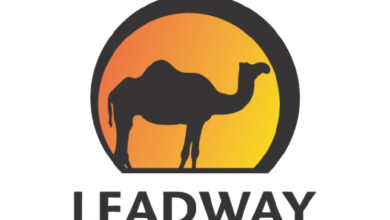The Numerous Opportunities Of AfCFTA For African Insurers

The African Continental Free Trade Area (AfCFTA), will create a single market covering more than 1.2 billion people, with a current gross domestic product of more than US$ 2.5 trillion, according to the Africa Insurance Pulse 2021, which focuses on AfCFTA.
The 2021 edition of Africa Insurance Pulse was formally launched and presented to delegates at the just concluded Africa Insurance Organisation (AIO) Conference and General Assembly in Lagos, Nigeria.
The free flow of goods, services, people and capital under the AfCFTA is expected to boost intra-African trade and strengthen the competitiveness of African companies. The African insurance sector is optimistic about the AfCFTA but wishes to see regulatory integration.
As in the past, this year’s 6th annual edition of the African Insurance Pulse, conducted by Faber Consulting on behalf of the AIO, is based on careful market research and in-depth interviews with nearly 30 insurers, reinsurers, intermediaries, regulators and policymakers operating in Africa.
Jean Baptiste Ntukamazina, Secretary-General of AIO, said: “The AfCFTA has significant potential to serve as a catalyst for transforming the African economy. For the AfCFTA to succeed, dynamic pan-African trade is required, which can only take root in a stable sociopolitical environment. The African insurance sector is ideally positioned to provide security, economic and financial stability and enable the development of societies and economies in Africa through its risk knowledge and risk transfer solutions. However, to play this important role, African insurers need integration or even harmonisation of insurance regulations.”
The service sector is by far the largest contributor to the continent’s GDP growth In Africa, the service sector (including the insurance sector) made the largest contribution to GDP, with 53 % in 2020. The relevance of the services sector is even more significant, as the widespread informal sector is not included in most statistics. The African Union expects an increase in exported services and further growth in industries that are heavily dependent on services, such as manufacturing and agriculture. Liberalisation of the service sector is likely to be driven by the private sector, especially financial institutions, which will play an essential role in shaping policy.
Insurance growth in Africa has been driven by economic growth. The maturity of the insurance market is low in most African countries. Insurance penetration is expected to increase in African markets where insurance growth has been accompanied by structural reforms, such as market liberalisation, compulsory insurance enforcement, wider distribution, public-private partnerships, and a regulatory system promoting innovation and market access.
The trend towards tighter capital requirements for insurance companies to ensure their solvency will establish stronger companies and promote job creation and build capacity in the industry. These reforms are crucial to increase the security and performance of the continent’s insurers.
Regional expansion of re/insurance business lags behind its potential due to trade barriers. While intra-African trade agreements have gradually seen a substantial reduction in tariffs on goods, non-tariff barriers, such as infrastructure gaps, the low quality of trade logistics, access to credit, and human capital, remain high for most African countries.
Despite these efforts, the intra-African trade remains below its potential. This is also true for the insurance sector, according to the executives interviewed. Most insurers operate in just one or two markets.
Even Africa’s reinsurers, acting as a shock absorber for cedants and economies, are challenged to diversify their portfolio because of many barriers and constraints in African insurance markets. Ahead of the implementation of the AfCFTA, a geographic expansion to build scale is the top priority for insurers and reinsurers alike.
Dr. Corneille Karekezi, Group Managing Director and CEO, Africa Re, commented: “Today’s trade restrictions within Africa are higher than those with the rest of the world. While intraregional exports amount to roughly 50 % of trade in Asia and 69 % in Europe, in Africa only 17 % of exports remain within the continent. Therefore, it comes as no surprise that large hopes rest on the AfCFTA. According to the United Nation Economic Commission for Africa (ECA), intra-African trade is expected to experience a boost of 52 %, encouraging manufacturers and service providers, including re/insurers, to leverage economies of scale.”
Survey respondents are optimistic about the AfCFTA but hope for an integration of insurance regulation.
Re/insurance players have much to gain from a continent-wide single market. Once fully implemented, the eight strategic objectives of the AfCFTA will benefit re/insurance companies in Africa directly or indirectly.
The eight AfCFTA strategic objectives include (1) creating a single market for goods and services, facilitated by the movement of people; (2) contributing to the movement of capital and people and facilitating investment; (3) creating a continental customs union; (4) expanding intra-African trade; (5) resolving the challenges of overlapping memberships in regional economic arrangements; (6) promoting sustainable and inclusive economic development; (7) boosting industrial development; and (8) enhancing competitiveness.
As a result, the expectations of the various insurance stakeholders for the AfCFTA are high. Many believe that the insurance pie will grow with the liberalised market access, facilitating an expansion beyond their current market range. In particular, re/insurers operating in one or a few markets see this as a unique opportunity to grow and diversify their risk portfolio.
When asked about the top three challenges to a successful implementation of the AfCFTA, respondents most frequently cited increased competitiveness, indicating that not all countries, sectors and economic actors are equally prepared to benefit from the implementation of a common market. Another top concern of the interviewed market participants is that insurance regulation differs widely across the continent and often poses hurdles to market access.
Therefore, almost all respondents, including regulators and policymakers, agree that the current regulatory differences present a major obstacle to integrating African re/insurance markets.
Meanwhile, the Nigerian Vice President, Yemi Osinbajo, said the African Continental Free Trade Area (AfCFTA), offers plenty of opportunities for the insurance industry in Africa.
Prof Osinbajo stated this in his message delivered virtually during the closing of the 2021 Conference of African Insurance Practitioners and investiture of the new president of AIO, Mr. Tope Smark.
He urged African insurance practitioners to leverage opportunities in the AfCFTA, adding that “every smart economic grouping, whether governments or businesses, must be thinking, planning and strategizing for these new times.”
According to him, “The free trade agreement presents a major opportunity for African countries. By some estimates, if we get it right, we can bring several million out of extreme poverty and raise the incomes of 68 million others who live on less than $5.50 per day. There are potential income gains of up to $450 billion, and just cutting red tape and simplifying customs procedures alone could drive up to $250 billion of that sum.
“So, what does all this mean for the insurance industry in Africa? Well, plenty of opportunities. More trade in goods will mean a greater need for insurance services, brokers, in particular, should expect a boom; demand for trade facilitation services will rise, but obviously companies that already have market presence in other African countries, even if by collaboration, will benefit more than others.”
Continuing, the Vice President noted that “we can expect to see more well-capitalized insurance providers from other African countries coming to compete in the Nigerian market. And we shouldn’t be surprised if this happens quickly.
“Services can be set up faster than manufacturing plants. Nigerian financial services companies, especially banks, are already in many African Countries, the likes of Zenith, Access, UBA. How about Insurance companies? We should now be looking at developing homegrown international African insurance conglomerates. The time is now.”
On the issue of climate change, Prof Osinbajo probed, “how is the African insurance industry preparing for the interesting days ahead?”
Referencing a Mackenzie podcast transcript, the Vice President said, “it was quite eye-opening. While there will obviously be opportunities for new insurance products and solutions, especially in the property and casualty segment of the business, insurance companies must also be prepared for the systemic nature of climate-induced damage, with the possibilities of market failures and more system-wide destabilization.
“Here in Nigeria, the growing intensity of flooding and damage to vast agricultural acreages might have a knock-on effect on other areas of the economy. Further slumps in the economy is bad for everyone, even insurers.”
Prof Osinbajo then added that “for Africa, there is perhaps a more significant challenge. In the past two years, the wealthier countries, after building their own economies on fossil fuels, are now banning or restricting public investments in fossil fuels, including gas. Seven European countries, including France, Germany, and the United Kingdom, announced that they would halt public funding for certain fossil fuel projects abroad.
“Also, the World Bank and other multilateral development banks are being urged by some shareholders to do the same. The African Development Bank, for instance, is increasingly unable to support large natural gas projects. Already, some OECD based insurance companies are already committing to reducing their commitments to carbon-intensive industries by 2030.”
Explaining the implication of the trend on Africa’s growing oil and gas markets, Prof Osinbajo said, “I think African insurance companies must now speak and act differently.”
“You must be at the forefront of the campaign for a just and equitable transition to a low carbon future. This means that we cannot accept a defunding of gas projects when gas is an important transition fuel for us. Not just to get our people from the environmentally damaging firewood to cooking gas, and also autogas for our auto vehicles, but to also provide much-needed power for industries and domestic use.
“Africa’s economic future might really be at risk if we do not find our voices and, in unison, insist that the necessary speed to zero emissions must not mean disaster for our African economies,” the Vice President added.





